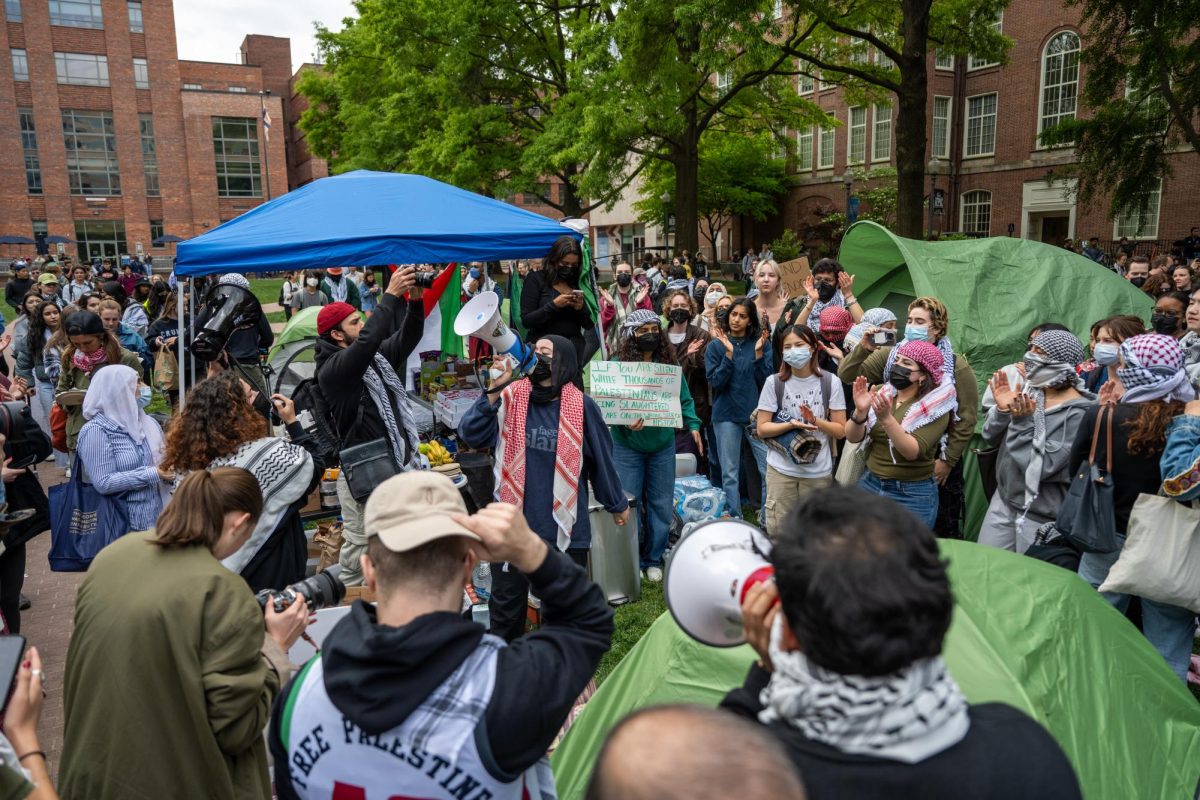Steve Meima left his home in Montgomery County, Md., for Southeast D.C. Saturday afternoon, toting two kids and a few guns.
Meima, who goes hunting and skeet-shooting, is one of many D.C.-area residents who sold back their firearms to the Metropolitan Police Department Saturday. Funded by a D.C. Council emergency resolution in July to fight escalating crime, MPD had up to $250,000 to pay residents from D.C., Maryland and Virginia for their guns.
“They’re a liability around the house and they’re not needed for the shooting I do,” Meima said. “One of them is not legal anymore and so the conundrum I had was that I had an illegal firearm.”
Although gun possession in the District has been illegal since 1977, those surrendering firearms to the police on buy-back days are granted amnesty.
Those who turned in their weapons from 9 a.m. to 7 p.m. Saturday received $100 for assault-style rifles and automatic or semi-automatic pistols; $50 for revolvers, Derringers, rifles and shotguns; and $10 for air, BB and pellet guns, as long as they were in working order. The guns purchased will be tested for involvement in open criminal cases and melted.
Participants drove up to one of three D.C. MPD stations holding the event and handed their weapons to the officer before exiting their vehicle. The officers then walked the participant and the weapons back to the station. Participants sat and waited while police checked to see if the guns were operable, before receiving payment for the weapons.
The buy-back ran smoothly with officers not taking the day off Saturday, said MPD 7th District Commander Joel Maupin, who oversaw the event in the Seventh District Station. He added that additional patrols around the buildings were arranged so participants were not robbed of their reward money after selling their guns.
According to an MPD press release, three D.C.-sponsored buy-backs in 2000 brought in around 6,000 firearms. As of 2:30 p.m. Saturday, 135 guns had been collected citywide.
E. Faye Williams, chief of staff for councilmember and former D.C. Mayor Marion Barry, visited the Seventh District Station during the buy-back.
“I believe that (Barry) sincerely does all that he can to make sure guns are not easily accessed by criminals,” Williams said.
Williams said the event was hopefully inspiring women to bring in their husbands’ guns.
“I think that even if they found a gun around their home they would want to bring it in,” she said. “When guns are not easily accessible, people are forced to talk and negotiate their differences.”
Other District officials were more skeptical of the buy-back.
D.C. Councilmember Phil Mendelson told The Washington Post that he doesn’t think buy-backs actually reduce crime and that there is no research to prove either way.
“Real crooks don’t turn in their guns,” Mendelson said. “The money could be used more effectively with proven law enforcement.”
WPGC radio station broadcast live from the buy-back event at the Sixth District Station in Northeast.
DJ Storm from WPGC called into the radio program from the Seventh District Station. He said that as a father he is particularly concerned with guns being accessible to children and teens.
“We feel as though it’s important that people in the community realize how serious this is,” he said. When asked if the violent lyrics in the rap music he airs sends a conflicting message, Storm dismissed the issue.
“I think it’s all in the state of mind . they throw this stigma to the music they play on the radio,” Storm said. “They blamed the music, then they blamed the video games; next they’ll be saying it’s the grocery store.”






